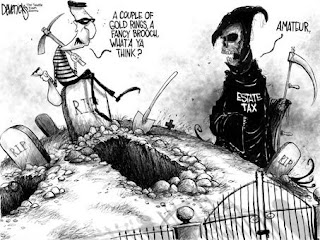Stan Greenberg is one of America's most experienced pollsters and author of the new book, "Dispatches from the War Room" — an insider's account about how the world leaders for whom he polled handled their crashes/slipups.
I picked the above from Thomas L. Friedman’s “Secrets of a pollster” (IHT Online, March 26) which provided some particularly insightful points for true national leaders to consider.
(Despots and tyrants are exempted.)
Friedman’s article was written in the context of President Barrack Obama’s and his handling of America’s potential recovery from one of the most debilitating economic downturn ever, but much of conclusion could be applied in our case.
In case you can’t be bothered to read the article in full , here is Friedman's conclusion on the "leadership lessons":
“You can't be too honest in describing big problems, too bold in offering big solutions, too humble in dealing with big missteps, too forward in re-telling your story or too gutsy in speaking the previously unspeakable.”
All these points has to be read with their examples to make full sense, but I am particularly drawn to the one on (now ousted and former) Britain Prime Minister Tony Blair.
Blair sold to the voters that they could put their trust in the Labor Party – which had been the opposition for a good 18 years (since Margaret Thatcher days?) – to provide fiscal prudency and at the same time managing to update Britain’s “decrepit government hospitals and schools.”
Greenberg drew attention to the story of a British cancer patient who could not get a surgery scheduled until the cancer became inoperable, enroute to concluding that Blair had overpromised.
"Blair and New Labor were forever associated after that with being more spin than real," said Greenberg.
Sound’s overly familiar, doesn’t it?
The lesson from this:
Be honest with the public early on when facing huge challenges as they will let you off the hook on a literal campaign promise if you level with them early about the difficulties and how long it will take to see progress.
What of us back here in Malaysia?
What do we want from our leaders and how long are we able to “sacrifice for the greater good” as to embrace the future that every one of us could look forward to?
Going by the stark disparity (or so it seems)in opinions between the opposing pull of conservatism and liberalism, is this future the one and the same between all of us, our leaders included?
One person’s Utopia can easily be another’s Hell.
In Umno's case, for example, it would be between winning the heart of Malays against winning the heart of Malaysians?
Which shall it be?
Can the party reach a middle ground and will it be one ALL of us can look forward to?



.jpg)





